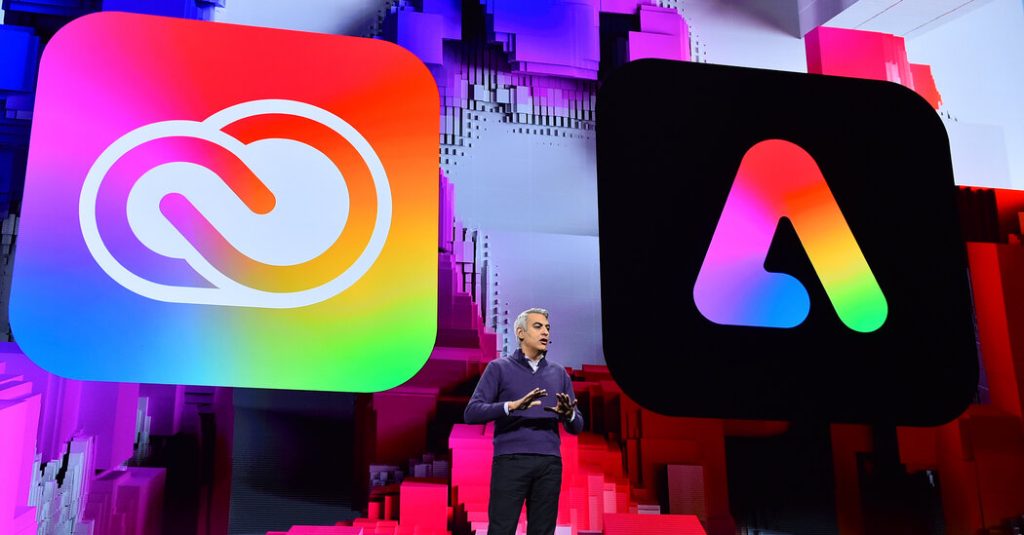Unveiling the Controversy: Adobe’s Subscription Snare
In a bold move that underscores the ongoing regulatory scrutiny of digital giants, Adobe Inc., the powerhouse behind essential software like Photoshop, Illustrator, and Acrobat, finds itself at the center of a legal battle. The U.S. Justice Department’s recent lawsuit against Adobe signals a growing intolerance for business practices deemed to undermine consumer rights, particularly those that make it cumbersome for users to cancel subscriptions. This contention not only shines a spotlight on Adobe but also echoes broader regulatory concerns around the tech industry’s customer retention tactics.
The Core of the Dispute
The Allegations at Hand
The Justice Department’s litigation, filed in the US District Court for the Northern District of California, accuses Adobe of deliberately obscuring details about steep cancellation fees associated with its product subscriptions. According to the suit, the company resorted to fine print, optional text boxes, and hyperlinks to hide these terms, complicating the cancellation process and ensnaring customers in unwanted subscriptions. This approach, the government argues, was knowingly implemented, making it unnecessarily challenging for consumers to extricate themselves from Adobe’s services.
Comparison with Past Crackdowns
This legal challenge is not happening in isolation. It follows a similar lawsuit against Amazon concerning its Prime membership cancellations, reflecting a broader regulatory crackdown on tech companies. The Federal Trade Commission’s proposed "click to cancel" rules aim to dismantle barriers across the industry, enforcing a straightforward mechanism for subscription cessation to safeguard consumer interests.
Adobe’s Response and the Stakes Involved
Adobe, defending its practices, asserts transparency in its subscription agreements and touts a straightforward cancellation process. The company’s general counsel, Dana Rao, has expressed intentions to contest the FTC’s claims vigorously in court. However, the allegations have drawn attention to the broader implications of Adobe’s business model transition from perpetual licenses to subscription-based offerings—a shift that has seen the company’s subscription revenue more than double from $7.71 billion in 2019 to $14.22 billion in 2023.
Exploring the Broader Context
The Big Tech Antitrust Landscape
Adobe’s legal struggles highlight a growing trend of antitrust actions targeting major tech entities. With the industry’s giants like Google, Amazon, Apple, Microsoft, and Meta already under regulatory scrutiny for practices that potentially stifle competition, Adobe’s case adds another layer to the ongoing debate about the power dynamics at play in the tech ecosystem.
Implications for the Subscription Model
The lawsuit against Adobe underscores a critical examination of the subscription model that has come to dominate software and services. While subscriptions offer benefits like consistent updates and scalability, criticisms over cancellation policies and consumer lock-in strategies have led to calls for more transparent and consumer-friendly practices.
FAQ
Q: What specific practices is Adobe accused of?
A: Adobe is accused of making it difficult for customers to cancel subscriptions by hiding cancellation fees in fine print and complicating the cancellation process through its website and customer service lines.
Q: How does this lawsuit compare to actions against other tech companies?
A: Similar to actions against Amazon over Prime subscription cancellations, this lawsuit is part of a broader regulatory effort to ensure fair consumer practices among tech giants, especially regarding subscription models.
Q: What is Adobe’s defense against these allegations?
A: Adobe claims to be transparent in its subscription agreements and emphasizes that it has a simple process in place for users wishing to cancel their subscriptions.
Q: What broader issues does this lawsuit highlight?
A: The lawsuit raises important questions about the transparency of subscription services, consumer rights, and the power dynamics between large tech companies and their users.
Conclusion
The lawsuit against Adobe represents a crucial moment in the ongoing dialogue about consumer rights, regulatory oversight, and the ethical dimensions of business practices in the digital age. As the case unfolds, it will not only shed light on Adobe’s policies but also set precedents for how tech companies manage subscriptions, engage with users, and navigate the fine line between profitability and fairness. With regulatory eyes firmly fixed on the tech industry, the outcome of this legal battle may herald a new era of consumer protection and corporate accountability in the digital marketplace.
